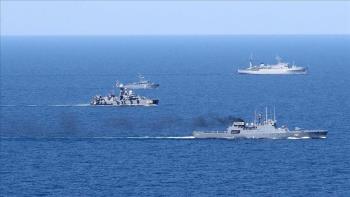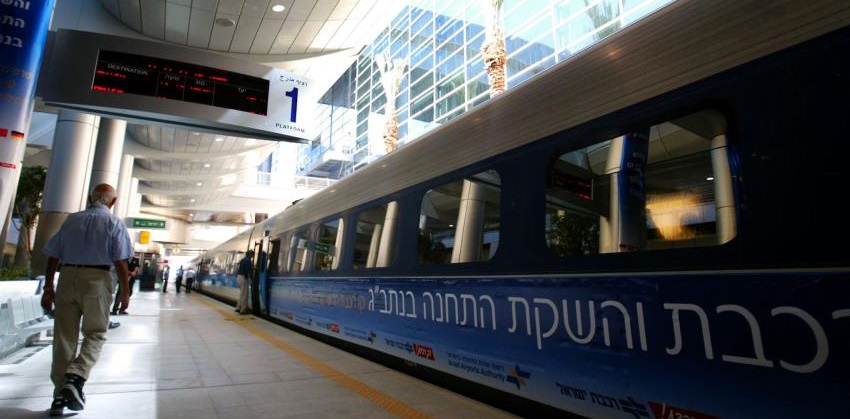Alwaght- Over the past years, the Israelis have worked hard to establish contacts with Arab states such as Saudi Arabia, the United Arab Emirates, and Bahrain. Their efforts mainly revolved around the transition from the unofficial, behind-the-scene links to open diplomatic relations.
Meanwhile, some route and transit connections between the occupied Palestinian territories and the neighboring countries appear to play a big role to his end. Over the past months, the Israeli Minister of Transportation and Intelligence Yisrael Katz more than once called for linking the Israeli regime to Saudi Arabia through a goods and passenger railway that travels through the Jordanian territories.
Labelled the “regional peace railway”, the project is planned to, in the first phase, construct a new line between Jezreel Valley in southeastern Haifa and Beit She’an city close to the Jordanian border. The line is scheduled to link Jordan and the Palestinian territories under the Palestinian Authority’s control to the Haifa Port on the Mediterranean coast. The railroad is expected to pass the Sheikh Hussein Crossing between the occupied territories and Jordan and reach Dammam, Saudi Arabia via Jordan’s Irbid city. The railroad's main objective is to transfer goods and passengers from the Persian Gulf region to Ashdod and Haifa ports and from there to Europe.
What are the main Israeli drives and advantages of this project?
Moving out of regional isolation
The fact is that the Israeli regime is seeking ways out of a long-term regional isolation. The West Asian developments after the Israeli defeats in 2006 war against Lebanon and 2009 war against Gaza Strip went against the advantage of Tel Aviv. Then came the Islamic awakening that stemmed from the 2011 Arab uprisings. All these led to Israeli power shrinkage and on the opposite side, the power gain of Iran-led Resistance Axis.
The trend kept thriving even after Donald Trump became president of the US. He in early December 2017, recognized al-Quds (Jerusalem) as the capital of the Israeli regime and ordered the relocation of the American embassy from Tel Aviv, a move that not only failed to serve the Israeli interests but also destroyed the so-called peace negotiations between Israeli and Palestinian Authority officials and fomented anti-Israeli sentiments among the Muslim nations.
In these negative conditions, Tel Aviv, which finds itself caught in an unprecedented isolation, tries to invest in the regional divisions, especially those between the subservient Arab regimes and Iran, in a bid to prepare the ground for Israeli-Arab diplomatic normalization. Expansion of economic ties with Saudi Arabia, which is moving in this course under the American pressures, through various ways can provide a driving force for the normalization process.
Economic benefits
The need for economic advantage makes up another motivation for the Israeli leaders to diligently pursue the railroad project to link them to the Arab markets. Tel Aviv is planning for the Haifa-Beit She'an railway in an effort to link the Arab states via Jordan and thus cash in on being a regional hub of marine transit. The core idea behind the project is that the Israeli regime can transform into a bridge connecting the European countries and the Mediterranean Sea to Jordan and the Eastern countries. Jordan is expected to take the role of transit route for goods and passengers to and from Iraq and the Persian Gulf Arab states.
Currently, Turkey uses the Haifa Port to send goods to the Persian Gulf region. Nearly 25 percent of the Turkish goods go to the Persian Gulf states via Jordan and the Israeli port. The growth of the Turkish trade through the Israeli port mainly resulted from the years of war in Syria whose ports had the duty before the devastating conflict. Figures suggest that Israeli-Jordanian trade during the past five years saw a 65 percent growth rate, with the transit trucks moving through the Sheikh Hussein Crossing saw a four-fold increase in number.
Anti-Arab Israeli pressure instrument
Such a railroad and the consequent trade interactions can be instruments in the hands of Tel Aviv. Once the trade via this link is launched, the Israelis can put strains on the Arab countries hosting the railway when the need arises. Although it will not do so as much as possible now due to hard situation it is grappling with, the Israeli regime will keep this possibility for the future.
Obstacles ahead
Implementation of the project faces some restrictions, however. Here are some of them:
1. For the current time, other than Egypt and Jordan no other Arab states hold official diplomatic relations with Tel Aviv regime. This means that any business relationship with the occupying regime is possible after the establishment of diplomatic relations. In the present conditions and in the mid-term, such normalization is unlikely. The Palestinian crisis is going towards escalation. The Israelis continue their anti-Palestinian violations with full support from the Americans. These all herald movement of the conditions towards more confrontation. On the other side, despite the fact that some Arab regimes, led by Saudi Arabia and the UAE, are open to diplomatic, economic, and even military ties with Tel Aviv, their nations stubbornly are against even existence of Israeli regime let alone establishing ties with it.
2. The Arab host countries can cut the Israeli interests from the project by cutting their train links.
3. The railroad, especially the lines passing through the Arab countries, can be easily endangered by the local dissenters or the anti-Israeli nationals from foreign countries. After all, Tel Aviv cannot control and secure the cross-border parts of the line.
4. The governments of the host countries lack the popular legitimacy and sooner or later will be replaced with popular new governments, which, most likely, will not regard relations with the Israelis positively.



























